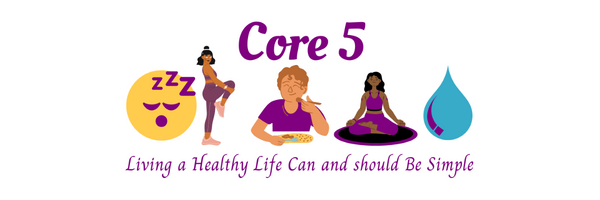A quick summary of this article: the average person is not a health-related scientist and doesn’t need to be to achieve results.
I’m going to propose two different scenarios for someone hoping to improve their health, and think which one would be more effective:
- Person 1 tries to be a know-it-all. They try to figure out the exact grams of protein, carbs, and fat they should eat each day, build a strict exercise regimen, and plan to sleep from 10pm to 6am every day no matter what. They aim to hit these numbers perfectly, day after day, week after week.
- Person 2 focuses on behavior changes, one at a time. They start with adding a veggie to their lunch, perhaps an addition of carrot sticks on the side. They do this for two weeks, then add a glass of water to their usual breakfast. They do this another two weeks, then start going for a ten minute walk during lunch. And so on. And they let these small changes compound over time.
Life is Variable
We know that days often don’t go exactly as expected. A plan that doesn’t take this into account is not a good plan if you want long-term change. A good plan will recognize that some days, exercise isn’t possible, that fast food will be the go-to for meals, and that 8 hours of sleep every single night isn’t always realistic.
The human body is robust and can handle occasional steps like these (I don’t call them ‘missteps’ as that word has a negative connotation). It isn’t failure, they’re not mistakes, they’re not bad. Internalizing this is one of the healthiest things we can do – it takes some pressure off and reminds us that we are humans, and humans aren’t perfect, and this is normal. Any plan that makes us feel unacceptable for being human, even just occasionally, is a not a good plan.
Imagine how discouraging it would be to have specific grams of protein to get to each day, and how it’d feel on the days when you don’t hit that exact number? Same with all the other too-specific daily goals. And to feel this pressure day after day. How long could one keep that going?
Effective plans should be easily understood and executed
From a health professional perspective, if we try to encourage people to engage with plans that they don’t fully and completely understand, OR plans that don’t account for life not being perfectly ideal, how can we expect them to make long-term change?
We do not need to be nutrition experts, physiology experts, sleep experts, or experts in anything. Making healthy change can be simple, and it’s often most effective if we don’t complicate it. Just about everyone knows how to live healthier. Most of the time, education isn’t the issue. Temptation and social influences are.
In conclusion, there’s no magic trick that you’re missing and that others have. When we focus on tiny behavioral changes over time like Person 2, and don’t try to play armchair scientist, we can lose 5 pounds, 100 pounds, and make a world of difference for ourselves.
